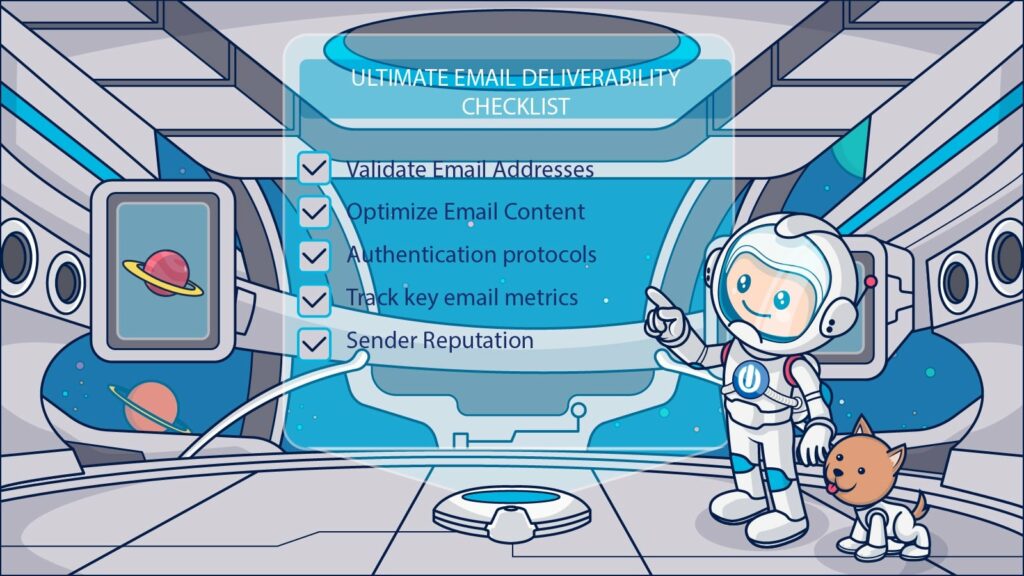Email service providers, or ESPs, are an integral part of how modern email marketing is conducted. They can contribute enormously to the success of an email campaign by helping marketers become considerably more efficient in their operations.
While serving similar function, ESPs are different in many aspects to SMTP relays.
What is an ESP?
There exists some confusion about what an email service provider is, with two common causes.
The first is that people occasionally conflate the term “ESP” (Email Service Provider) with “ISP” (Internet Service Provider). ISPs provide their customers with internet access and associated maintenance services and have no part in what ESPs do.
The second cause for confusion is the fact that there are companies, such as Microsoft or Google, that offer free email services to internet users. However, though these companies do provide an email service of sorts, they are not considered ESPs and do not serve the same function.
In actuality, the term “email service provider” refers specifically to companies that offer specialized services intended for email marketing. ESPs assist email marketers with sending out bulk emails to large subscriber lists, something that common email services like Outlook and Gmail are not designed for.
What are the advantages of using an ESP?
Email service providers boast a variety of important benefits for marketers and email marketing campaigns:
ESPs prevent reputation and deliverability issues
When sending out emails en masse from a typical customer-level email, marketers are likely to run into deliverability issues because standard email accounts are not intended to facilitate bulk send-outs.
Using a customer-level email to conduct an email marketing campaign can result in your account being labeled a spammer account and subsequently blacklisted by your internet service provider.
Having outbound messages blocked or ending up in recipients’ spam folders is obviously a major issue, as this can jeopardize the success of an entire email marketing campaign.
Fortunately, with an email service provider, it is possible to circumvent problems like this, for the most part. Because ESPs anticipate that users will send high volumes of emails, they are prepared to solve any issues that might occur on their IP addresses.
ESPs provide valuable data
Attempting to enact an email marketing strategy without using an ESP can be a tall order. This is largely because there is no clear way to understand whether or not the strategy is having its intended impact. Email service providers offer an effective solution to this issue.
Among other useful features, ESP platforms provide analytics and tracking. This enables you to access key metrics related to your email marketing campaigns, such as subscribes, unsubscribes, open rates, click-through rates, and bounce rates.
Knowing which links subscribers click on most often, which emails are most frequently opened, and which are not can give you crucial insight into the engagement levels of your recipients, allowing you to adjust your email campaigns accordingly to achieve maximum impact.
ESPs promote good list hygiene
List hygiene is a key aspect of effective email marketing.
However, email cleaning involves segmenting subscribers according to engagement level and then systematically removing inactive or incorrect addresses from your list, which means it can be a time-consuming process.
Moreover, when done manually, a certain degree of error is inevitable, and this harms the efficiency of your email marketing campaign.
An ESP can alleviate these issues. The addition and removal of email addresses are handled automatically. Segmentation is much simpler as well, with automation allowing you to quickly and easily deploy re-engagement measures where appropriate.
ESPs enable easy & efficient campaign creation
The majority of email service providers offer tools that can help you quickly craft a coherent and engaging email campaign. Typically, they offer a variety of useful design templates that look appealing and save time. Moreover, using automation, ESP platforms allow you to use templates in conjunction with segmentation and triggered responses to ensure that your email content always reaches the most relevant people in a timely fashion.
ESPs keep you compliant
Email marketers are required to operate in compliance with the CAN-SPAM act. This means that subscribers must opt in for marketing content of their own volition while also being allowed to easily opt out at a time of their choosing.
ESPs help with compliance because of their strict policies. ESPs typically insist that email lists are 100% opt-in while subscribers are allowed to opt out at every turn. For this reason, ESPs also forbid the use of purchased email lists, and even include management capabilities that help monitor email lists.
ESPs come with dedicated support
There are lots of stumbling blocks associated with email marketing, and this is especially true for smaller businesses looking to scale up their operations. Of course, setbacks will occur from time to time, but it pays to have dedicated customer support to help minimize their impact.
ESPs provide a high level of customer support specifically intended for email marketers, so IP issues can be solved quickly and painlessly, preserving the ROI of your strategy.
In addition, some ESPs offer assistance with devising campaigns, which can help you follow best practices and maximize the potential of your marketing content.
Summing up
ESPs are a core aspect of email marketing.
They enable marketers to send out emails in bulk while effectively managing subscriber lists and tracking the progress of ongoing email marketing campaigns. At the same time, they also provide dedicated customer support oriented around the needs of email marketers.
Though some advanced features may vary from service to service, the core value that ESPs bring remains consistent. Simply put, email service providers offer an all-in-solution for modern marketers. Without them, enacting email marketing strategies at scale would be next to impossible.













